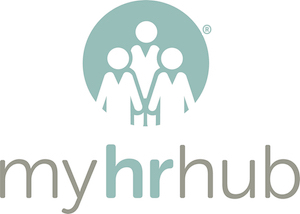The right to disconnect gives employees the right not to be contacted by colleagues, management or clients during times that are outside their usual hours.

We are all working harder than ever. A quick peek at emails during the evening, working on projects late into the night and at weekends, working zoom calls around family life, working over lunch and doing evening calls/emails when the working day ‘quietens down’.
Working from home during the pandemic has blurred the line between leaving work and switching off. The extra effort to retain employment, keep clients happy and be flexible has created a life for many where there are fewer chances to disconnect.
The 9-5 seemed to disappear for many during the pandemic, as work started at the crack of dawn and carried on until late into the evening.
As a result of this, increasing numbers of employees are reporting job dissatisfaction, burnout, poor mental health and a decline in their overall health and wellbeing.
So how do you start to now ‘re-create’ the working day and create boundaries?
Well, Ireland is trying to do just that. Although several countries, primarily in Europe, have enacted varying levels of past legislation on the right to disconnect, Ireland is among the first countries to try to introduce a code.
The three key rights enshrined in the Irish code are:
- The right of an employee to not have to routinely perform work outside their normal working hours.
- The right not to be penalised for refusing to attend to work matters outside of normal working hours.
- The duty to respect another person’s right to disconnect (e.g., by not routinely emailing or calling outside normal working hours).
Whilst it is always good practice not to expect employees to work out of hours and therefore avoid contacting them during this time, the right to disconnect goes one step further.
Not only does it prohibit this request, but it also allows employees to switch off their communication. The expectation is very much that if a member of staff is contacted out of hours, they are actively encouraged to only respond when back in work.
Across the world, countries have been trying to figure out how to enact effective right-to-disconnect legislation for years. These laws and regulations manifest in different ways – some putting a cap on the workday or workweek, some limiting communication after hours. But all mean to protect employees from overwork and shield them from any repercussions of shutting off.
However, the solution may not be as straightforward as it seems. In practice, it may actually be near impossible to combine the ability to log off with the freedom to work remotely, especially if that means creating timetables different to other colleagues. Some experts warn that this could compromise some of the flexibility workers have only recently been able to negotiate.
So, what is the right to disconnect?
- A right to disconnect allows employees to disconnect from work outside of normal working hours.
- It is aimed at improving the work-life balance of employees and reducing negative impacts on employees health and wellbeing and family life.
- This is designed to allow employees to switch off outside of their normal working hours and enjoy their free time away from work without being disturbed or penalised.
What can employers do?
Rather than wait for a government directive, organisations can take the initative themselves. Our right to disconnect policy template is available on the My HR Club portal and can be a great starting point for a company-wide effort to promote the right to disconnect and tackle a culture of overworking.
Employers need to be mindful of the enforcement of said policy, as well as the wider culture in their organisation. If staff are seen as ‘lazy’ for not replying to emails at 9pm at night, much more will need to be done aside from just introducing a policy.
Companies must also remember that, should they fail to tackle the issue head on, employees may well opt to leave for greener pastures at companies who do respect the work-life balance of their employees.
The team at My HR Hub believe that every employer can be an ’employer of choice’, we can help manage the implementation of a right to disconnect across your organisation, as well as get under the skin of your workforce to find out how they really feel.
Get in touch with us to find out more.


Recent Comments